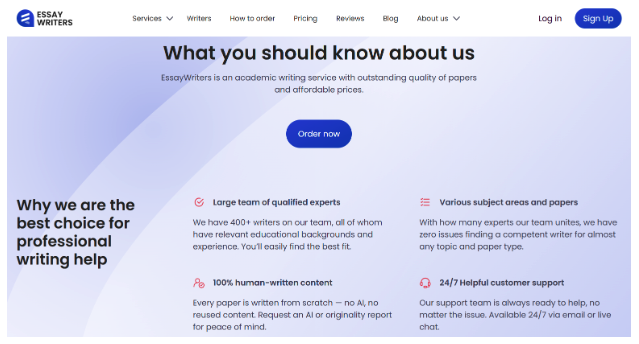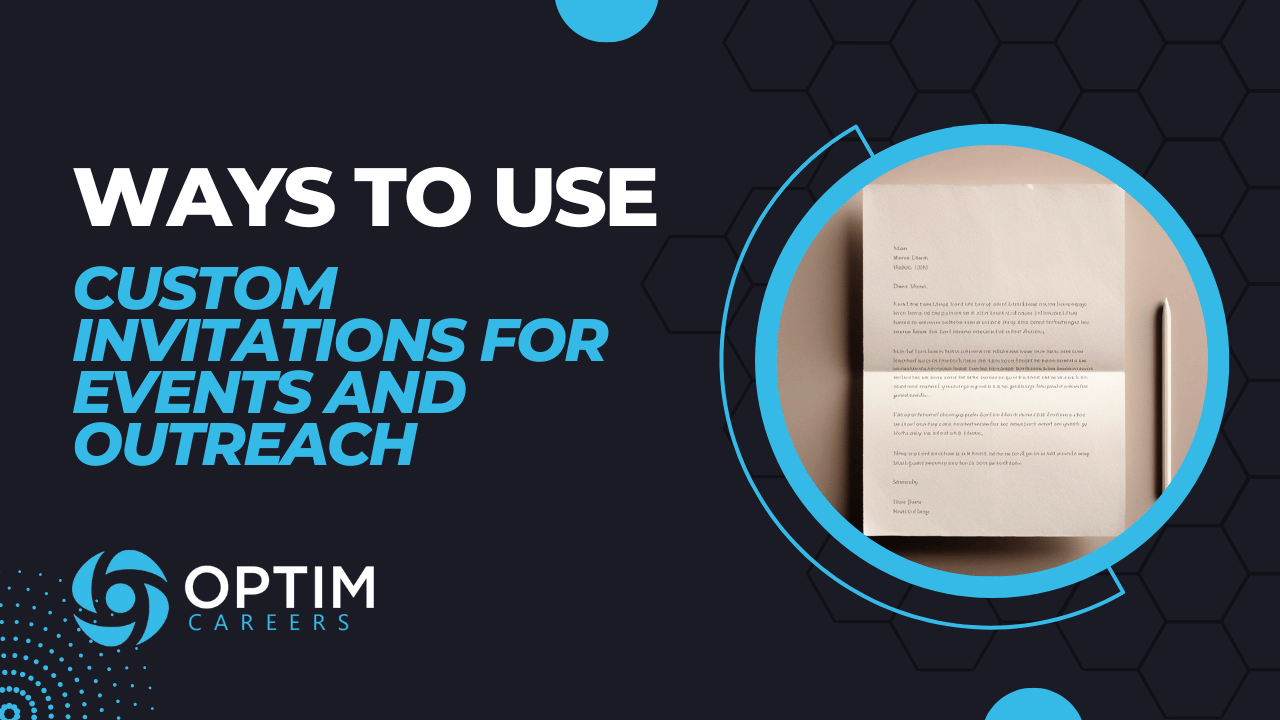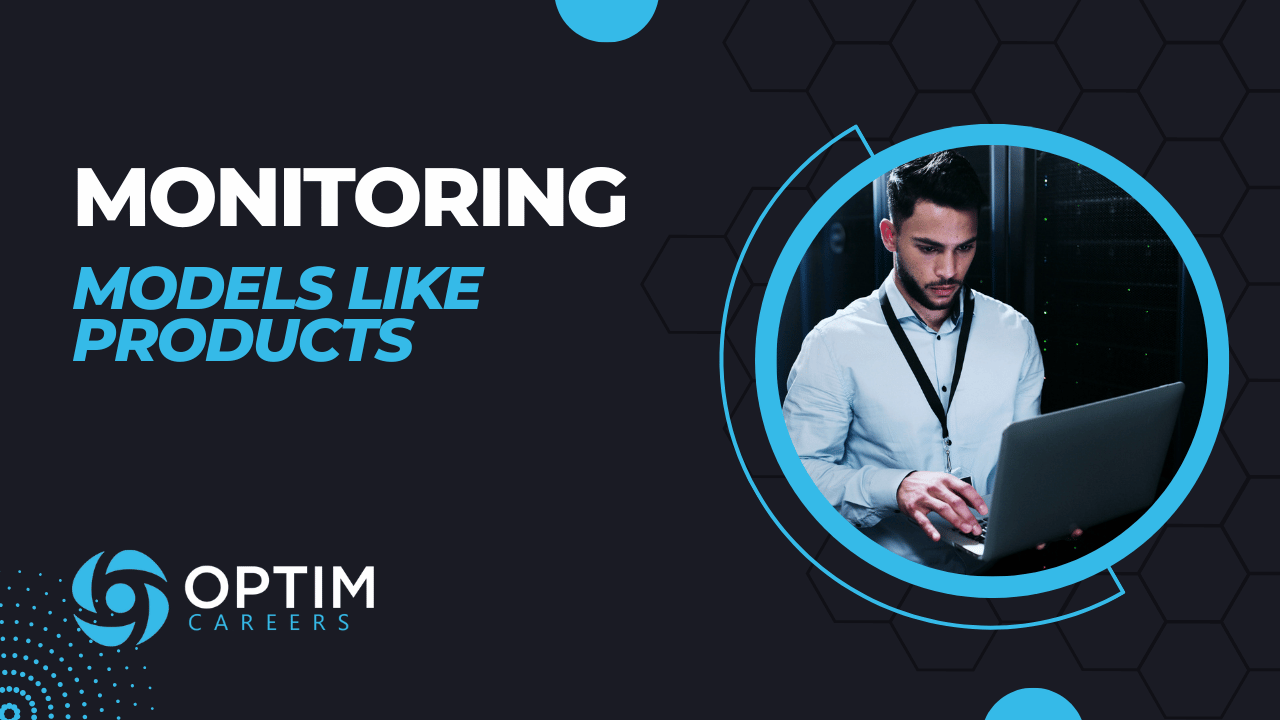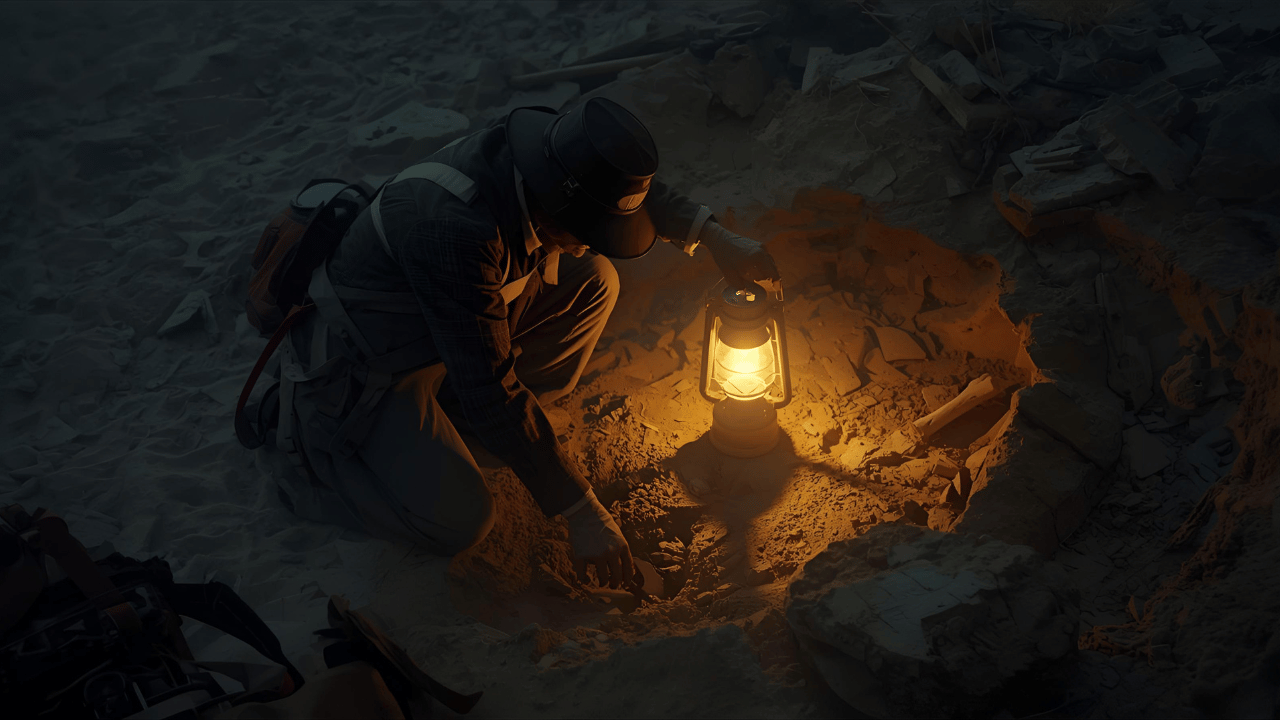How to Prepare for an Interview [In Less Than An Hour]
Most guides about preparing for an interview are vague, leaving you with “research the company” but little advice on how to best do that. They also haven’t caught up with modern-day job searching. You have a lot of resources at your disposal with AI and new tools that make preparing for an interview much easier than it used to be (and faster).
I set out to make this the most comprehensive, modern guide on how to prepare for an interview. Follow these steps, and you’ll be able to prep in half the time and you’ll be better equipped when you get to the interview.
I’m going to take you through 4 stages starting with researching, preparing, practicing, and then planning. Buckle up, here we go.
Examine the Job Description
This is something that takes some skill. I know that because when I meet with people who think they’re 100% qualified for a particular job, after I dig into the job description, most of them are around 70% qualified and they quickly discover that as I start asking questions.
When you read a job description, there are a few things you can do to help you prepare for the interview.
Turn responsibilities into hypothetical questions
First, take every bullet point under the responsibilities or duties section and turn it into a question. In fact, you can probably make it into several questions.
For example, if one bullet point reads “Prioritize workflow/pipeline for team to meet deadlines and ensure proper coverage for sales team,” you might come up with the following questions:
How do you prioritize pipelines for your sales teams? Which items get priority and which do not?
What strategies or methods have you come up with or implemented that have improved pipeline management or allowed the sales team to manage larger volumes?
What is the biggest size pipeline you’ve ever managed? If it was large, how did you make sure nothing fell through the cracks?
You get the idea I hope. The better you can do this, the more prepared you’ll be for the interview questions.
You can also use AI tools to help you with this. If you ask an AI such as ChatGPT this prompt: “I want you to act as a job interviewer. The job description says one of the key responsibilities is to prioritize workflow and pipeline for the sales team to ensure proper coverage. What questions might the interviewer ask me?”
You might get something like this back:
Prioritization and Organization:
Can you describe a time when you had to prioritize multiple tasks or projects within a sales pipeline? How did you decide what needed attention first?
How do you determine which leads or opportunities should take precedence when managing a sales pipeline?
What methods or tools have you used to track and organize the progress of deals in the pipeline?
Time Management and Efficiency:
How do you ensure that the sales team’s time is being used efficiently without sacrificing the quality of engagement with clients or prospects?
When dealing with a backlog of tasks, how do you decide which ones need immediate action and which can be deferred?
Communication and Collaboration with Sales Team:
How do you ensure that the sales team is aligned on the priority of deals and activities in the pipeline?
Describe how you would handle a situation where two team members disagree on the priority of a certain deal or opportunity. How would you mediate?
Metrics and Performance:
What key performance indicators (KPIs) would you track to assess the health of the sales pipeline? How would you use these to adjust priorities?
Can you share an example of a time when your prioritization of the pipeline helped the sales team exceed their targets?
Adapting to Changes:
Sales priorities can change quickly. How do you stay flexible when the pipeline shifts due to new opportunities or challenges?
If a new high-value client suddenly enters the pipeline, how would you shift priorities to ensure proper coverage for that opportunity without losing momentum on current deals?
Sales Tools and Technology:
Have you used any CRM (Customer Relationship Management) systems or sales pipeline management tools? How have they helped you streamline the workflow for a sales team?
What are some best practices for using technology to prioritize and manage a sales pipeline?
These are pretty good questions to prep for if you ask me. You could do this with every single responsibility if you wanted to.
Uncover Desired Traits
Next review the qualifications for desired traits and any sticky points you might want to get in front of.
Usually in the qualifications section, you’ll find a list of traits that the company thinks are important in successful candidates. These might be statements such as, “ability to work independently” or “proven communication skills” or “good at multi-tasking.” While resumes are usually assessed for technical know-how, these types of traits are usually assessed in the interview stage and they become much more important now.
What you want to do is ask yourself, How can I convey these characteristics through my past experiences? What stories can I tell that will show I am a good communicator or I’m good at multi-tasking? The key to a successful interview is to show these things, not tell them.
Everyone is going to walk in and say I have great communication skills - few people will be able to show that to the interviewer. The ones that can show it will move to the top of the candidate list.
The second thing to look for here is any sticking points that you think the interviewer may be concerned about. This section usually also lists things such as education requirements, software proficiency, and years of desired experience.
If you lack one of those things, you should have a plan to explain why that shouldn’t be a problem. Maybe you lack industry experience, but the industry you’ve been in is very similar to theirs. They may not know that, so have a plan to explain that.
Look for Themes
As you’re reading all of this, pay attention to similar items that repeat themselves. If the job description mentions the same thing, or similar things, multiple times, that’s a sign that it’s really important.
Also, there are often clues about important concepts in the opening paragraph of a well-written job description so check there too. Take extra time with these items when preparing for questions and answers.
Research the Company Using AI
Researching companies used to be a real drag, as it took a lot of time and some know-how about how to navigate the internet. Today, that’s not so much the case. Sure you can still go and test out a company’s product or service if you want to, but I don’t think that’s really necessary for most situations.
Bernadette Pawlik, from Coffee and a Consult, suggests using a tool such as Gemini which can scrape the internet for quick company research. Here are the questions she asks it.
Give me a brief history of XYZ Company
Compare XYZ Company with ABC Company (ABC is a similar company that operates in the same space as the company they are interviewing for)
Give me a summary of the analyst forecasts for XYZ Company
How does XYZ Company compare to their competitors
What are the key developments in XYZ Company in the last 5 years
All of this research used to take a lot of time, but now in a matter of 10 to 15 minutes, you can find out about a company’s history, its competitors, the market outlook, their customer profile, the products or services they sell, and their long-term forecast - all without reading 10-Ks and 10-Qs.
And when you know all of this stuff, you can answer questions and speak specifically to their company in the interview. This will set you light years apart from the majority of your peers who will give generic answers (trust me, I know - I sat in those interviews for years).
Research the Interviewer
So far, we’ve covered researching the job and the company, but many people forget about the person who will be deciding their fate. You can use AI tools for this too, but I prefer to hop on LinkedIn first and see if they have a profile.
The reason I like to do this is because I can also see connections and other people who may work with them - or worked with them in the past. Here are the things I’m looking for while stalking their profile and company online.
I want to know what their background is. Did they go to an Ivy League school? What level of education do they have? What type of companies did they work for before this? How long have they been with the company? What did they do before this job?
All of these things can give me clues about what they might value. They could be wrong, but going into an interview with an intelligent guess is better than flying blind. For example, if they went to a community college and so did I, that’s a win for me. Or if they have a similar background as I do that’s a good thing. Maybe they’ve never worked in this industry until this job; I would want to know that in case they bring up my lack of industry experience.
Research Who They’ve Hired In the Past
I might also be able to find other team members who work with them on LinkedIn. I can look at their backgrounds as well and this will give me potential clues about the type of people they like to hire.
What were their backgrounds? What industry experience do they typically have? How diverse of a team is it? What is their education level? How much experience does the team have?
All of these things can give me clues about what my selling points could be and what I might want to get in front of if I am missing some of these traits or skills.
Research Salary Benchmarks
Depending on the interview, it may make sense to research salaries as well. Often salary is a discussion in the first interview with an individual. It could come up in your phone screen or during the first interview you have with a hiring manager.
The best ways I’ve found to determine what your salary expectations are is to:
Ask a recruiter who recruits for the type of job and in the industry you’re interviewing.
Ask people in your network. Hopefully, you already have a network of professionals in your field and industry. Those are the best people to ask. They can even give you insights into particular companies’ pay scales and pay ranges for specific company sizes.
Research salaries on sites like Payscale or Glassdoor. I’m not a huge fan of these sites, but they can be a good starting point. I also have started to write a few salary guides which you can check out by going to my Search page and typing in “Salary”. These are based on real conversations with people doing the work, so they should be much more accurate than run-of-the-mill stuff you find online.
I also have a bunch of information about how to come up with a reasonable salary expectation and answer questions about pay in my article titled, “What are your salary expectations?”
Prepare for the Core 4 Questions
Now that we’ve got research out of the way, it’s time to prepare what you’re going to talk about. The first thing I suggest people prep for is how they will answer the top 4 questions on most employers’ minds.
I’ve sat in hundreds, maybe even thousands, of interviews over my career both as a hiring manager and a recruiter. In every single situation, these four questions were usually on everyone’s mind - regardless of the job.
Make sure you prepare for these. Also, be aware that most people won’t ask these questions point-blank. They’re going to ask other questions, but 70% of the time, underneath the question is one of these 4 concerns.
Why are you here?
Why are you interviewing here instead of somewhere else? How much do you know about who they are and what they do? Don’t have selfish answers either - no one likes a selfish person. If you decide that you want to work with them, show your interest, focus on them, and why you want to help them solve their problems. What challenges do you find thrilling? Don’t be afraid to throw in some flattery either. Everyone wants to feel good about the place they work and confirming this idea will never hurt your odds of getting the job offer. Talking about the company will go a long way.
What can you do for them?
If they hire you, will you help them with the tasks and challenges they face? How? What relevant experiences do you have to lean on? What results have you achieved for others? Prepare relevant stories and examples from your past that demonstrate your ability to help them with the relevant problems they face. It’s critical to understand the job you are interviewing for intimately so you can be prepared to discuss the interviewer’s potential challenges and position yourself as someone who can help them resolve their problems.
What kind of person are you?
Will you fit in? Will you inspire others? Will you be a pleasure to work with or a pain? Will your personality mesh well with the team? Do you share the same values? There are no right or wrong answers to this question. You are you and you should be confident in that. However, oftentimes people get tripped up by using the wrong words that convey the wrong impression to the interviewer. It’s important to sit down and think about the type of person you are, the type of people you work with best, and the environment you want to work in next. Brainstorm situations you’ve been in before and how you’ve handled those. And bounce your ideas off other people to make sure your stories convey the right message.
How are you different from the others?
What about you will give them more value for their money? People who see themselves as an economic product on the open market always perform better in interviews. Why are you a profit center instead of another cost? What makes you unique, in a good way? Do you get more done in less time? Do you have a unique background that enables you to rally cross-functional teams to a mutual cause? Prepare examples and stories from your past that illustrate your uniqueness and claims.
Prepare for Common Interview Questions
Now that you have all that research, you may want to prepare for some of the most common interview questions using that information. Here is a list of the most common questions I’ve seen across industries, levels, and job families. Many of these have their own separate interview prep guide - feel free to click through and read any of them.
What Is Your Greatest Weakness?
What are you looking for in your next job?
Tell me about yourself.
What are your salary expectations?
Why are you interested in this position?
Where do you see yourself in 5 years?
Do you want to tell us anything else about yourself?
Why are you leaving your current job?
What are you passionate about?
Tell me about a time you failed.
What do you do for fun?
What would you do if you knew you couldn’t fail?
Prepare for Person X
This is another great preparation strategy that Bernadette from Coffee and a Consult mentioned to me the other day. I don’t know why I didn’t think of it! When Bernadette works with coaching clients on interview prep, she likes to prep them for what she calls Person X.
Person X is the inevitable hiring team participant who doesn’t want to interview you. They want to see their nephew get hired and just don’t like you on principle - that kind of thing.
You need to have a plan about how you will handle this situation and defuse it. How are you going to engage them so they might want to reconsider? How are you going to keep your cool and find a way to show them that they might want to reconsider hiring you, even if they don’t start with that disposition?
I would say in about half of all the hiring situations I’ve been in (and that’s a lot), there’s usually a Person X somewhere in the journey. Prepare for it.
Prepare to Be Surprised
No matter how well you prepare, you’re not going to prepare for everything, nor should you. But you should have a plan for what you will do when they catch you off-guard. Will you use a strategic pause? What will you say? How will you react when they ask something that you didn’t prepare explicitly for?
Prepare Examples
Some people call these interview stories. I don’t think they need to be stories. In fact, I’d caution you that your stories aren’t too long. Instead, I would prepare evidence that can back up each of your selling points and claims you plan to make.
If you’re going to say you’re capable of something - prove it! What metrics can you rely on? What processes or methods can you walk the other person through so they know that you know what you’re talking about?
Everyone will make claims in an interview. In my experience, few can back them up and make others believe that they know their stuff.
Make note of any important numbers or details in your interview prep checklist. I often find writing these things down helps me remember them. Plus, it’s perfectly normal to bring a one-pager with you to an interview.
I’m always impressed when someone says to me, “I anticipated you might be curious about that Cole, I wrote down some notes about that I’d like to share. Is it okay with you if I reference them?” Heck yeah, it’s okay with me. I want the deets. And most hiring managers will feel the same.
If you wrote a good resume, you probably already have most of this information on your resume. If you’re still working on your resume, I’d start with my Definitive Guide to Resume Writing. You won’t find a more comprehensive resume guide on the internet (plus it’s free - tell your friends).
As you do this exercise, remember that this is a buying transaction you are involved in - a big one. This employer is making a big investment and wants it to pay off. You can think of it as the equivalent of buying a house for most people - it’s big and expensive!
You need to know how you will sell that you’re a good investment. Doing that will require specifics, not vague statements. If you think of it like this, it may help you find evidence in your previous work experience or projects that show you will produce a good return on their investment.
Prepare for Skill Tests
I’ve worked with hundreds of different hiring managers throughout my career and there are all kinds of ways I’ve seen them test for skills.
I’ve seen people turn around their computer to the candidate and ask them to code something or make a pivot table in Excel. I’ve seen interviewers ask candidates to walk them through step-by-step how they would do some detailed technical part of the job.
You need to plan for this because being able to do the job and being able to teach someone step-by-step how you do that job are two very different things. Make sure you take some time to think about how you would do the technical aspects of your job.
If you are an accountant, how do you book a journal entry? You would want to map out everything from identifying which sub-ledger it belongs on to making sure you have supporting documentation for it.
Go through your job description research and make note of all those technical skills the job requires. Make sure you can explain how to do each one if you’re asked.
I’ve been reading job descriptions and recruiting for over a decade now, so I like to think I’m pretty good at reading between the lines. I’ve also interviewed a lot of people across multiple fields and industries. I’ve started writing job-specific interview guides that include some of these technical test questions. Here are some recent ones you can check out.
13 Product Manager Interview Questions
Prepare Thoughtful Questions
Think about what questions you want to ask during the interview as well. Let me be clear, this is not a list of random questions you want to ask in rapid fire at the end of your interview. These are questions you want to uncover throughout the entire interview. Some you may ask directly, others you may just observe and answer for yourself silently.
When preparing these, think of it like this. What information do I need to know before I can confidently say that I am the best-qualified person for this job? If I decide that I am the most qualified person, what information do I need in order to sell my qualifications so they think so too?
Most people approach these questions with the mindset of, what do I need to know to find out if I like these people and this work? And that’s fine, but I think if you approach it the way I recommend, you’ll uncover your answers to those questions in addition to being armed with information that you can use to your advantage.
If you need help getting started with this exercise, here is a list of 38 unique interview questions that will help you uncover the answers you need.
And because you asked, here is a list of 20 good questions to ask at the end of an interview too.
Practice STAR, CARL, PAR Methods
For most questions, it really doesn’t matter what interview method you use to answer the question, just so you hit the key points necessary. You can even use your own method if you like. But for the sake of practicing, I’ll cover some of the popular ones.
STAR
STAR is probably the most widely taught method by interview coaches. It’s been around since the 1970s. It stands for Situation, Task, Action, and Result. It’s a good method for situational and behavioral questions.
CARL
CARL is a bit newer of a methodology. I’m not sure when it was created, but it seemed to gain popularity in the early 2000s. It stands for Context, Action, Result, and Learning. For questions that are gauging your ability to reflect and hold yourself accountable, this is a good method to use because it ends with what you learned from the situation.
PAR
PAR is another newer method (compared to STAR) which stands for Problem, Action, Result. All of these methods can be used fairly interchangeably and I would select one that feels comfortable for you.
My Method
I don’t have a fancy acronym for how I answer interview questions, but the majority of them I answer this way. I guess you could call it PERCT if you want to.
Philosophy
This is the part everyone gets right. It’s the generic part of the answer, but important. Here’s what I think about handling this situation, doing this task, or the strategy the interviewer has asked about.
Example
Next, I give an example of how I have applied that philosophy in a professional setting. This is the part I might include parts of the above methods such as the situation and actions I took.
Result
Next, I share the results that I achieved from my example. I do this because I want the interviewer to know why what I did mattered.
Confirmation
This part is easy. I will confirm that I can do this again for them. That may be a simple statement such as, “I’m confident that if I’m your next recruiter, producing quick shortlists of candidates won’t be a problem you’ll have to worry about.”
Toss
Lastly, I toss the ball back with an intelligent question that gauges whether they bought into my answer and if we are aligned on philosophy. This also helps engage the interviewer and produce a conversation flow.
Practice in Mock Interviews
Look, if you’ve been interviewing left and right recently, you probably don’t need to do mock interviews. Your real-life interviews have provided plenty of practice. But if you’re just kicking off a job search and you haven’t interviewed for a while, I highly suggest you do some mock interviews - even if they aren’t your favorite thing to do.
AI Mock Interviews
In fact, if you’re like me and get really shy doing mock interviews with other people (I don’t know why, but I always perform worse in mock interviews than real ones), then there are some great interview AI tools out there that can help you. My favorite is Final Round Interview. They’re known for their interview copilot, but I really like them for their mock interview features.
For the price of one coaching session, you can do unlimited mock interviews for a month. And it’s pretty good. It can read your resume and a job description and produce some good interview questions. It will then rate you on how well you answered them, ranking both your content and delivery.
Mock Interviews with Coaches
If AI isn’t your thing, you can also work with an interview coach. The best ones will create questions based on the job you will be interviewing for and then work with you to refine your answers ahead of the mock session. Then they’ll run you through a mock interview to practice your delivery.
Mock Interviews with Peers
If you’re fortunate enough to have colleagues who understand your field of expertise and who are willing to give you their time, you can ask them to do a mock interview with you as well. I have a group of close friends who are recruiters and we often would meet up at a coffee shop and do mocks together when someone was about to interview for a new job.
If you do mocks with peers, make sure they evaluate how fast you speak, your intonation, how concise your answers are, your body language such as eye contact, and the clarity of your answers. Giving them clear instructions about what you want them to pay attention to can help.
Practice, Don’t Memorize
This one is really important. You don’t want to sound like a robot in the interview. And unless you’ve been taking acting classes for the past 2 years, you probably don’t have the skills to memorize your interview answers and deliver them naturally. Just don’t try.
Instead, practice, but don’t focus on memorizing. Focus on building patterns for delivery. Focus on memorizing key facts, but not a script of what you will say in its entirety.
And whatever you do, don’t stay up practicing the night before your interview. Get a good night's sleep.
Plan What You Will Wear
I know it sounds obvious, but plan your interview outfit the day before. You’ve got enough stress as it is, don’t add this to your list. Usually, a recruiter will tell you what the dress code is.
If you’re not sure what to wear, I have a guide on Interview Outfits for Men. Sorry ladies, I’m probably not the best person to ask for interview dress tips for females.
Plan to Print Your Resume
If you’re interviewing in person, print a copy of your resume to take with you. You may want to reference it during the conversation. If you’re interviewing virtually, you can still print a copy and set it in front of you while you’re interviewing or you can pull up a copy on a second computer screen if you have one. Either way, just do what works best for you.
If you’re going to print it, print it the day before. The last thing you want to deal with the day of your interview is a printer that isn’t working.
Plan to Arrive Early
If you are interviewing on-site, make sure you know how to get there and anticipate traffic and other problems that can occur. It’s your responsibility to foresee and plan for things that can go wrong. Leave early on the day of the interview, but don’t arrive more than 15 minutes early.
If you get there more than 15 minutes early, stop at the Starbucks down the block or something. I wouldn’t even pull into the parking lot more than 15 minutes early.
Plan to Test Your Tech
If your interview is virtual, test your connections the night before. Make sure you have the right software installed, whether that be Teams, Zoom, or whatever. And make sure it is updated. The last thing you want is to enter your interview on time and realize that an update is needed - now you’re late.
A few hours earlier, go into the meeting software and test your camera and mic.
I hate to say it, but I would also set up a virtual background (unless your home office is a nice one). I’m always shocked by the amount of bias that happens based on background. It’s worth picking out a nice one before. Keep it professional, like a coffee shop, office setting, or something. Don’t make yourself look like you’re flying around outer space.
Plan to Follow Up
If your interview is in person, check to see if there are business cards at the front desk when you walk in. If the interviewer has a business card, grab it. Over the years, this has become less popular, but some people still have them out.
If your interview is virtual, check the meeting invite for any emails of the people you’ll be meeting with. Make a note to copy those and save them somewhere, whether in an Excel spreadsheet or a job search tracker software.
You’ll need all of this later when you follow up.
Final Tips on Preparing For Your Job Interview
Think of it as a conversation
An interview is a conversation between two people trying to figure out if they can help one another. If the purpose of a resume is to get a date, then the purpose of an interview is to find out if you want to get married. That may take a couple of interviews. View the interview like this. You aren’t taking a test. You don’t have to get all the answers “right.” You’re also not on trial. This is not an interrogation. This is why you don’t have to memorize a bunch of questions and answers. What you need to do is know yourself better, know how to ask questions that uncover what the employer needs and wants, and have a concise message that associates you as the answer to their problems.
Don’t try to impress the interviewer
Most people think to sell, sell, sell when they go into an interview. Don’t do this. Depending on your situation, you may not feel like you have much bargaining power. Maybe you needed a job yesterday. But you have more power than you think. If you don’t believe us, just think about this phrase, “I quit.” It’s quite clear you have something to say about the subject. You can either decide if this is a place you want to work now or do it later - your choice. But don’t let the interview process rob you of your power.
Don’t assume, ask
We mentioned don’t start selling yourself right away. You need to ask intelligent questions in order to sell appropriately. If you don’t know why the position is open or what happens if the hiring manager doesn’t fill this role in the next two weeks, how will you know what to say? Every interview has two steps. First, gather information. No amount of prep will give you all the information you need. You will have to ask great questions. And then after you’ve decided that you can indeed help the interviewer meet their goals and that you want to work with them, then sell yourself appropriately.
Be concise
This goes back to preparing well but losing the adjectives and vague language. It comes across as lazy, insincere, or like you’re hiding something. And you’ll feel it too! Be specific about how you will do things, how you’ve done things in the past, and what your ideas are. Of course, this requires you to have well-thought-out answers, but if you prepare for depth rather than breadth (like we showed you earlier), this will be easier.
Posture
Amy Cuddy has a Ted Talk that discusses posture in the animal kingdom and how it is associated with confidence and dominance. Now, we’re not saying go in with an attitude of dominating everyone during the interview, but posture can help you feel more confident because it affects chemicals in your brain. When we have good posture, we will feel more confident and others will see our confidence - literally.
Dress up your surroundings
If you’re interviewing virtually over video, being in an environment that makes you feel comfortable and looks professional can be a confidence move. You don’t have to spend $1,000 redecorating a home office to do it either. Clean up the area around you. This is for you. And then go to Canva and find an office background that looks great and set it for your virtual background. It may sound silly, but we all subconsciously pay attention to this. In one study of hiring remote workers, we found there was a huge preference given to those with virtual backgrounds. Our favorite was the coffee shop background.
Go for a jog
Study after study shows that exercise is a confidence booster. You may feel a bit sore after your first job or workout, especially if you don’t do it regularly, but you’ll feel good getting your body moving. On the morning of your interview, go for a short jog or lift some weights in your living room with Apple Fitness and you’ll see your confidence level through the day increase.
Aim to connect, not close
Don’t try to close the interview. Instead, be present and fully engaged with the intent of connecting with the other person in the interview room with you. Provide helpful answers for them, share ideas freely that may help them solve their challenges, and be interested in what they have to say. By focusing on connecting with your interviewer, you’ll find some of your interview nervousness and self-doubt disappears.
Remember that you have the cookie
This sounds silly, but I’ve never forgotten it. Early in my career, someone told me to remember that I have the cookie and I get to decide who gets the cookie. For some reason, this mentality always helped me improve my executive presence in the interview - knowing I was equally as powerful and valuable.
How to Prepare for an Interview Recommended Reading
10 Ways to Combat Nerves in a Job Interview
Thank You Email After Interview Examples
Follow-Up Email After Interview Examples
Cole Sperry has been a recruiter and resume writer since 2015, working with tens of thousands of job seekers, and hundreds of employers. Today Cole runs a boutique advisory firm consulting with dozens of recruiting firms and is the Managing Editor at OptimCareers.com.















